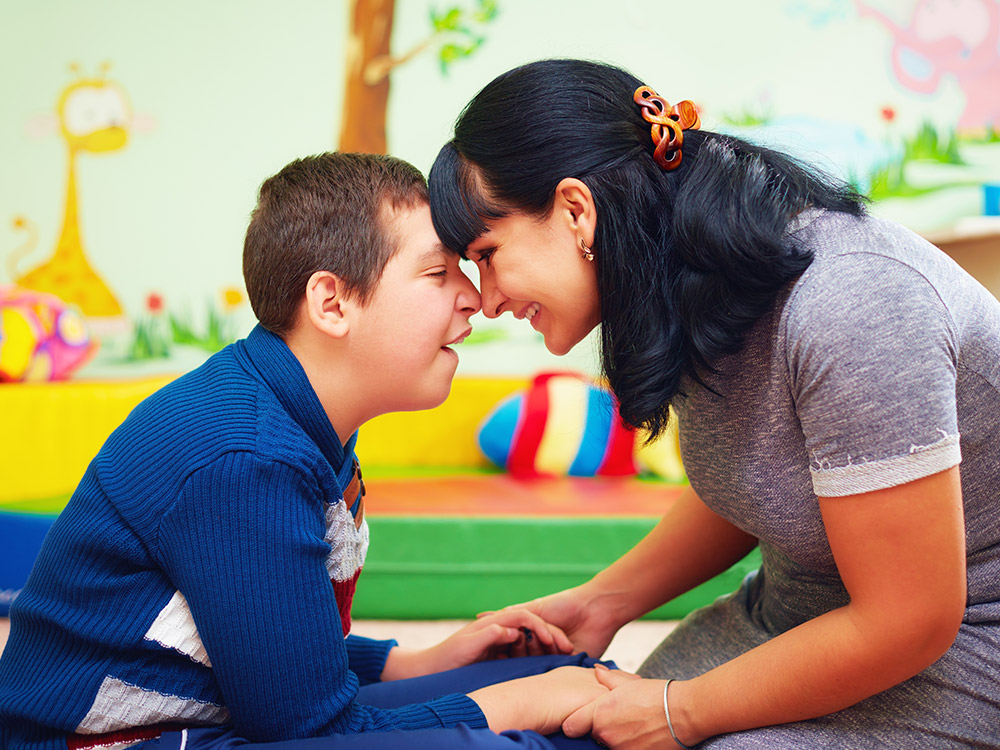Recognizing Autism: A Comprehensive Guide to Signs And Symptoms and indications
Autism Spectrum Condition (ASD) encompasses a wide variety of features that can dramatically affect an individual's social interactions and day-to-day functioning. Identifying the signs and signs, such as obstacles with eye get in touch with, social communication troubles, and sensory level of sensitivities, is essential for very early intervention. Understanding these nuances not just aids caregivers and educators in providing appropriate support however additionally fosters a much more comprehensive environment for individuals with ASD. As we check out the intricacies of autism, it comes to be necessary to take into consideration how these indications materialize differently across the spectrum and what ramifications they hold for reliable treatment techniques.
Overview of Autism Spectrum Disorder
Specifying Autism Range Problem (ASD) entails identifying it as an intricate neurodevelopmental problem identified by a variety of obstacles in social communication, communication, and behavioral patterns. The term "spectrum" mirrors the vast irregularity in signs and symptoms and their extent, which can vary substantially from one individual to another. ASD generally manifests in very early childhood years, although some individuals may not receive a medical diagnosis till later on in life.
Elements influencing the growth of ASD consist of genetic predispositions and ecological aspects, although the precise causes continue to be under examination. Diagnosis often depends on behavioral assessments, as there are no clear-cut medical tests for ASD. Early treatment is important and can significantly boost results, focusing on boosting communication abilities, social interactions, and flexible actions.
People with ASD may also display distinct toughness, such as outstanding attention to information or particular areas of knowledge. Understanding the diverse nature of ASD is essential for promoting an inclusive atmosphere that suits neurodiversity. Continued study is vital for establishing effective treatments and support group, making it possible for individuals with ASD to flourish and accomplish their potential within culture.
Usual Signs of Autism
Acknowledging the common indications of Autism Range Disorder (ASD) is important for very early recognition and intervention. These indications can differ extensively in seriousness and discussion, yet certain attributes are regularly observed in individuals with ASD.
One of one of the most widespread indicators is a marked problem in developing and keeping eye get in touch with. People might additionally show limited rate of interest in social communications and reveal a choice for singular play. Recurring behaviors, such as hand-flapping, rocking, or spinning objects, typically arise early in youth. In addition, some youngsters might create rigorous regimens and become distressed if these routines are disrupted.
Sensory sensitivities are also common; people may underreact or panic to sensory stimulations, such as structures, sounds, or lights. autism. Language advancement can be atypical, with some children exhibiting postponed speech or utilizing language in unusual means, consisting of echolalia-- repeating phrases or sentences listened to somewhere else
It is necessary to note that not every individual with ASD will certainly show all these signs, and the degree of these habits can differ dramatically. Early acknowledgment enables prompt assistance and resources, boosting the high quality of life for those on the spectrum.
Social Interaction Challenges
Social interaction challenges are a characteristic of Autism Spectrum Disorder (ASD), affecting an individual's capacity to engage properly with others. These problems can manifest in different ways, including obstacles in starting and preserving discussions, comprehending social cues, and reacting appropriately in social communications.
Individuals with ASD might struggle with nonverbal interaction, such as eye call, faces, and body language. This can bring about misunderstandings, as their communicative intent might not be correctly analyzed by others. They may locate it difficult to comprehend the subtleties of tone and context, home which are important for efficient interaction.
In group settings, people with ASD might feel overwhelmed and might not recognize how to join in discussions (autism). They could also exhibit irregular conversational patterns, such as monologuing concerning details rate of interests without acknowledging social reciprocity
In addition, these challenges can lead to social isolation or problems in creating partnerships, as peers may misinterpret their behavior or communication style. Recognizing these social interaction obstacles is essential for promoting helpful atmospheres that advertise social abilities advancement and improve the top quality of communications for people on the autism range.
Sensory Level Of Sensitivities and Feedbacks
Many individuals with Autism Spectrum Disorder (ASD) experience enhanced sensory level of sensitivities that can significantly impact their every day lives. These sensitivities might show up as over-responsiveness or under-responsiveness to sensory stimulations, consisting of noises, lights, structures, tastes, and smells. For instance, an individual with ASD might locate day-to-day sounds, such as a vacuum or crowded atmospheres, overwhelmingly upsetting, resulting in anxiety or meltdowns. On the other hand, some may exhibit an indifference to discomfort or extreme temperatures, which can posture security issues.
Sensory handling differences in people with ASD can also influence their ability to take part in social interactions and routine tasks. A child that is sensitive to touch might stand up to physical love or stay clear of specific clothes materials. Additionally, a preference for certain structures or preferences can restrict dietary choices and develop difficulties throughout mealtimes.
Understanding these sensory sensitivities is essential for recognizing the distinct experiences of people with ASD. Understanding of their sensory accounts can cultivate far better interaction and assistance strategies, creating an environment that accommodates their requirements and improves their top quality of life. Inevitably, recognizing sensory level of sensitivities is a crucial component of comprehending the broader spectrum of autism.

Supporting Individuals With Autism
Reliable assistance for individuals with Autism Spectrum Condition (ASD) is crucial for enhancing their general health and fostering independence. Support approaches should be customized to fulfill the unique requirements of each person, considering their challenges and strengths.

Social skills training can likewise play an essential role. autism. Engaging people in team tasks or role-playing circumstances can boost their capacity to browse social interactions. Additionally, it is important to inform member of the family, caregivers, and peers regarding ASD to promote a helpful and inclusive community
Conclusion
By fostering boosted communication and social skills, people with autism can navigate their settings a lot more successfully. Eventually, enhanced recognition and support can significantly boost the high quality of life for those influenced by ASD.
Autism Spectrum Disorder (ASD) includes a wide array of qualities that can significantly affect an individual's social communications and daily performance.Individuals with ASD might struggle with nonverbal interaction, such as eye contact, facial expressions, and body language.Many individuals with Autism Range Disorder (ASD) experience enhanced sensory sensitivities that can substantially impact their everyday lives.Sensory handling distinctions in people with ASD can also impact their capacity to engage in review social communications and regular activities.Comprehending these sensory level of sensitivities is important for identifying the unique experiences of individuals with ASD.